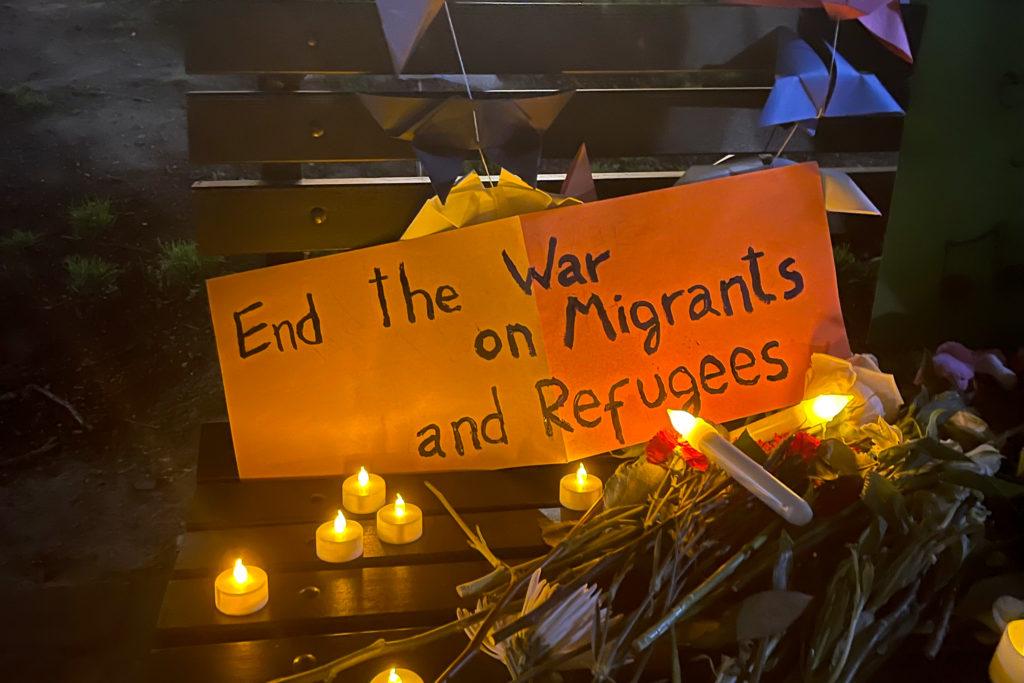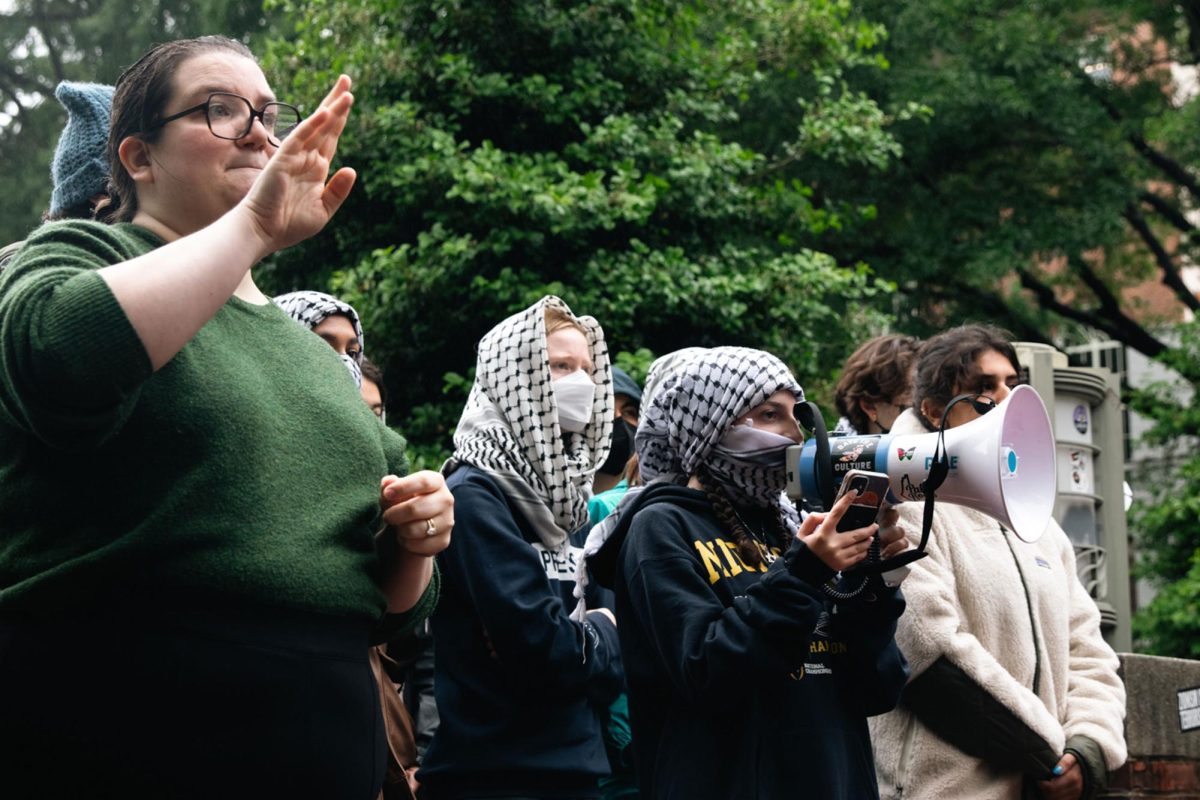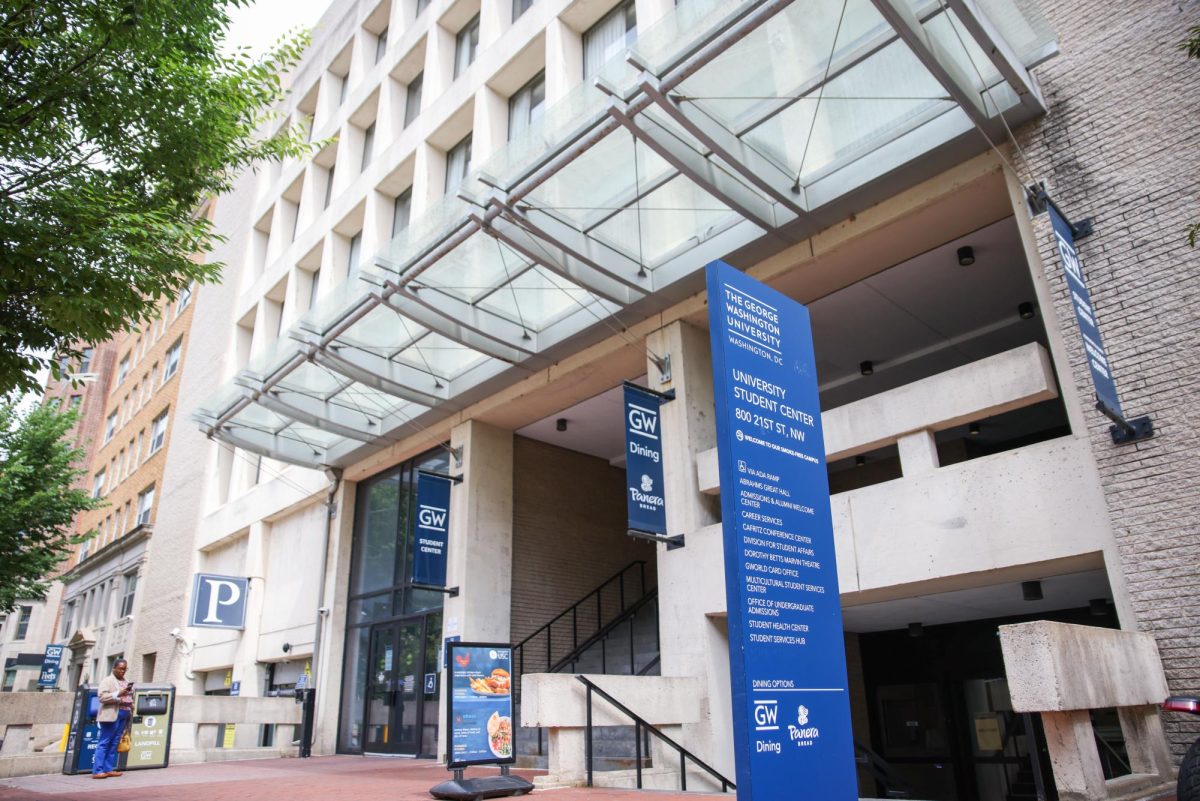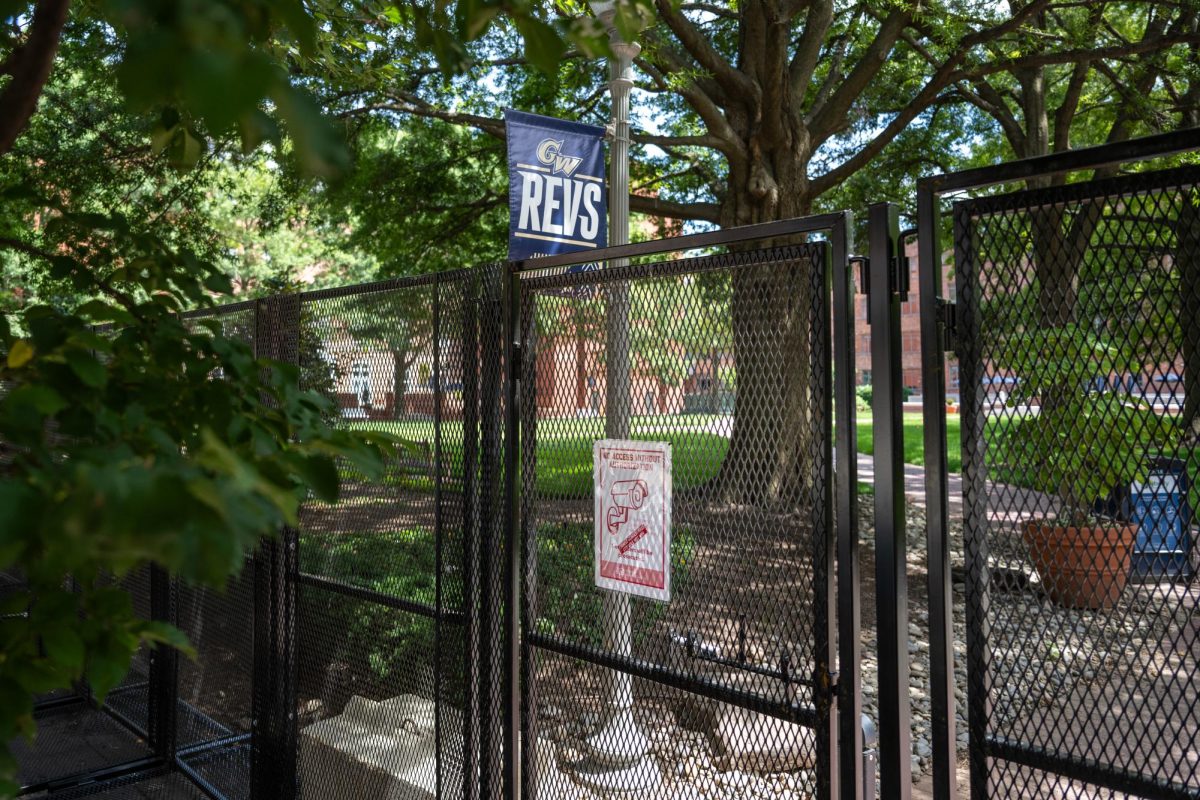Student demonstrators from three campus organizations hosted a vigil in front of the White House Saturday to honor victims of a fire at a border detention center in Juárez, Mexico late last month.
More than 50 demonstrators joined UndocuGW, League of United Latin American Citizens GW and Students Against Imperialism in Lafayette Square to mourn 40 migrants killed in a fire at an immigrant detention center in Ciudad Juárez, Mexico, across the border from El Paso, Texas. Gatherers said the recent tragedy highlights problems with U.S. border policies, like Title 42, which have triggered overcrowded shelters and strained conditions in centers because of the high number of migrants denied asylum.
A fire broke out at a Juárez migrant processing facility near the major border crossing at the Paso del Norte Port of Entry March 27. Authorities alleged migrants started the fire by igniting their mattresses to protest their impending deportation, and facility surveillance footage showed security guards walking away from the fire and not attempting to release the inmates.
Mexican president Andrés Manuel López Obrador said Tuesday that the guards didn’t have the keys needed to unlock the migrants’ cells.
On March 28, a Mexican court launched an investigation into the fire and arrested three officials from the National Migration Institute – the agency that operates the Ciudad Juárez facility – two agency-contracted private security guards and the inmate accused of starting the fire.
Junior Ángel Lagunas, the vice president of UndocuGW and the main organizer of the vigil, said they heard about the fire on Instagram and felt the initial report that migrants were burning their beds was “justified” as a protest of detention facility’s poor conditions, like overcrowding and a lack of accessible medical professionals.
“They were just gonna go back to their deaths,” Lagunas said. “And now, knowing that they were set on fire and left to die, it only enrages me more.”
Lagunas said demonstrators hoped to urge U.S. Immigration and Customs Enforcement and Department of Homeland Security officials to put an end to “xenophobic” immigration policies and called on government officials to abolish Title 42, which allows the United States to suspend migrants’ entry to “designated places” to prevent spread of communicable diseases. The federal government created Title 42 as a part of the Public Health Service Act of 1944 and the Center for Disease Control and Prevention reenacted it in March 2020 because of COVID-19 concerns.
Julian Abeledo, president of LULAC GW and one of the other vigil organizers, described the tone of the demonstration as “mournful and indignant,” with demonstrators holding candles and signs around a floral offering as they chanted “no more dead migrants.” He said he was horrified to see footage of the guards failing to help the imperiled inmates.
“It speaks to the horrible reality we live in where I saw it, and just the headline almost glazed over me because it just feels like we’re seeing death all the time at the border,” Abeledo said. “But then, you see the video, and you see the guards just leave the migrants there to die, just ignore them as they’re begging to be freed, and that was just really horrifying.”
Abeledo said the deaths at the Ciudad Juárez facility are “on the hands” of the U.S. government and believes the fire is a product of U.S. border policy. He said the government should repeal Title 42, which he believes has exacerbated poor conditions in Ciudad Juárez and pushed more asylum seekers into Mexico.
Abeledo said the federal government should stop considering the President Joe Biden travel ban proposal in February, which would bar asylum for most non-Mexican migrants who do not seek it in other countries or have opted out of other asylum options.
“The U.S. government, at the very minimum, needs to repeal Title 42, and it needs to not enact the transit ban that is currently being considered by the Biden administration,” Abeledo said. “And then I would say also, generally, that it needs to have a much more open policy towards migrants and towards refugees.”
Junior Jaylee Davis, co-chair of Students Against Imperialism, said she helped organize the vigil because national news outlets and GW community members were not paying “enough attention” to the cause. Davis said she hoped to increase awareness about issues migrants are facing while attempting to gain entry into the U.S. by drawing attention to the fire and border policies through the vigil.
“We talk about the border in theoretical terms about policies and a little bit of entrenchment and bureaucracy,” Davis said. “It actually affects people’s lives, and it kills them.”
Davis said as government officials ease pandemic restrictions across the country, COVID-era immigration policies like Title 42 have been “contradictory” in continuing to bar access for migrants seeking asylum within U.S. borders.
“If you’re going to say COVID is over, then why do you have these immigration policies that restrict people who are seeking asylum at the border?” Davis said. “It’s just fundamentally egregious.”
Sophomore Javier Orellana, president of UndocuGW, said accusations that the migrants caused the tragedy by igniting their mattresses overlooked that the migrants were in danger of being deported and that immigration authorities would have “taken everything from them.”
Orellana said he was “connected” to the issue because of his own identity as an immigrant from El Salvador and added that immigrants currently have “limited” access to healthcare and educational programs in the United States.
“I feel connected in the same way that we all came here: in search of the American Dream,” Orellana said. “We all come here because we believe that our lives are going to be better.”








